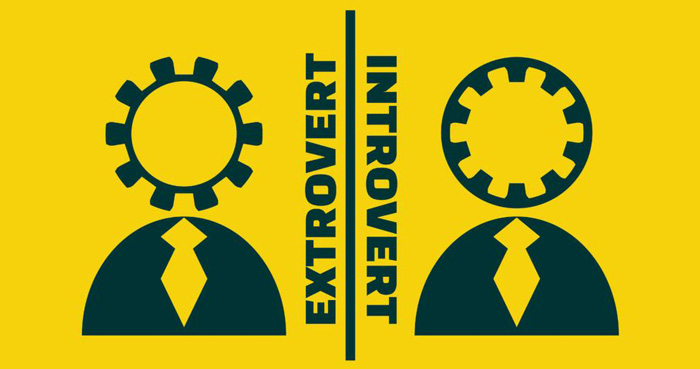The concept of ‘introvert’ and ‘extrovert’ is one that’s fairly well understood – if occasionally confused. An introvert is someone who enjoys their own space and needs ‘alone time’ in order to recharge and to get back their energy. Extroverts meanwhile are people who love socializing and who need to be around others in order to feel most comfortable.

It doesn’t necessarily always follow that introverts are ‘shy’ – simply that they need alone time occasionally. Often though this will be the case, and introverts will tend to be more insular and less outgoing. Usually an introvert will have fewer friends but will have closer relationships with the friends they do have.
There is some debate as to which is the ‘better’ way of being. Traditionally, we assume that extroverts will be better in sales-types situations, while introverts will be better at working independently and at tasks that involve introspection.
As it turns out, these assumptions may not be correct. What’s more, is that there is actually a ‘third type’ of person who perhaps represents the true ideal. This is the ‘ambivert’.
What Is an Ambivert?
The ambivert is not a new concept. In fact, Ambiverts were described by Carl Jung in his book Psychological Types alongside introverts and extroverts. Here, Jung wrote:
“There is, finally, a third group… the most numerous and includes the less differentiated normal man… He constitutes the extensive middle group.”
This is what we now refer to as the ‘ambivert’; someone who is neither entirely introverted or extroverted but rather exists in the imaginary ‘middle ground’ between those two types.
The ambivert is someone who enjoys socializing and who needs time to themselves. This is someone who is able to move between introverted and extroverted modes of behavior and who is generally more adaptable as a result.
As Jung described, ambiverts actually represent the largest of these groups, which makes it very likely that you are an ambivert yourself.
The Benefits of Ambiversion
In a 2013 research paper titled Rethinking the Extroverted Sales Ideal, author Adam M. Grant found that extroverts are actually not best suited to sales tasks (1). In fact, he found that extroverts would very often be off-putting for potential buyers because they were so forward in their approach to selling. People don’t like being hassled or talked ‘at’. Rather, most shoppers prefer someone more open minded, who will listen to their needs and take them into account with their recommendations.
But the very best group? The ambivert! Grant explained:
“Ambiverts achieve greater sales productivity than extroverts or introverts do because they naturally engage in a flexible pattern of talking and listening, ambiverts are likely to express sufficient assertiveness and enthusiasm to persuade and close a sale but are more inclined to listen to customers’ interests and less vulnerable to appearing too excited or overconfident.”
On top of being more flexible when it comes to dealing with other people – which helped the ambivert group to net 24% more sales than extroverts – ambiverts are also generally more intuitive and sensitive at the same time as being more emotionally stable. Hans Eysenck is the psychologist who actually coined the expression ‘ambivert’ and he found that ambiverts were able to listen to the opinions of others without being too ‘hypersensitive’.
So if you find that you’re introverted in some situations and extroverted in others, chances are that you’re really an ‘ambivert’. And that’s the best type of vert to be!



